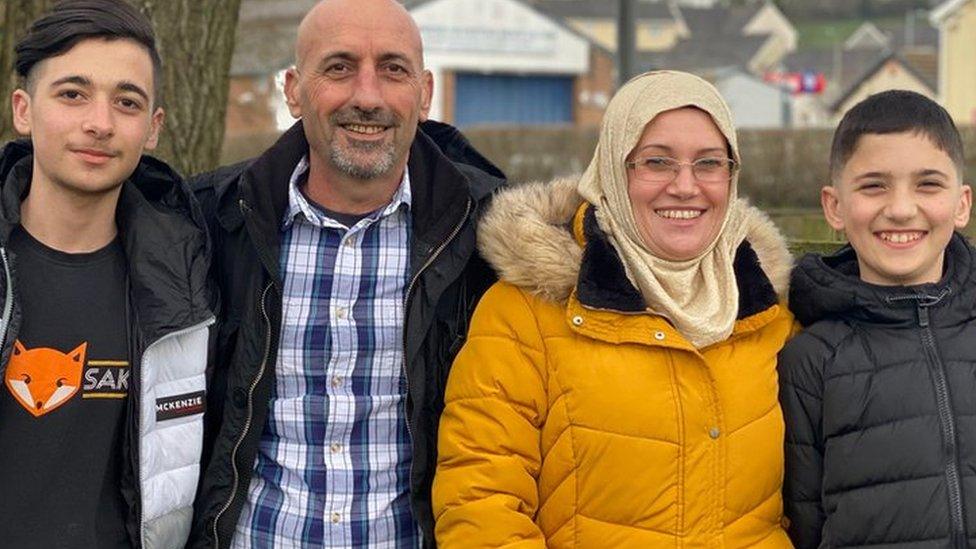Ukraine: Housing hold-up leaves refugees in limbo in Wales
- Published
Olga says she and her son Maxim fled the war in Ukraine so he could go to school
The hours before Olya said goodbye to her husband were spent sorting through rubble at the family home she had fled near Ukraine's capital, Kyiv.
She was looking for anything she and five-year-old son Maxim might need for the long journey to sanctuary.
Olya's husband suggested she head for Wales, where the government was taking in refugees, and he waved them off at the train station as he was staying behind to fight in the war with Russia.
"I didn't know much," explained Olya.
"They called me on behalf of the government, telling me that they would take us in, give me and my child a bed, and that I would be able to feed my child.
"That's all the information I needed at the time. To know that I would be safe, that I would have something to feed my child."
It took Olya and Maxim three days to reach Wales, where the Welsh government has taken in more than 1,000 Ukrainian refugees so far as a so-called super sponsor.
Those arriving are sent to welcome centres, such as hotels, repurposed by officials until the occupants can be found more permanent accommodation.
Five have opened with a sixth set to open this week.
However, there are concerns many refugees could be stuck in the temporary accommodation for the longer term, with a shortage of housing seemingly holding up the process.
The Welsh government said it was working with local authorities to find "longer-term" accommodation for refugees, either through host families or other options.
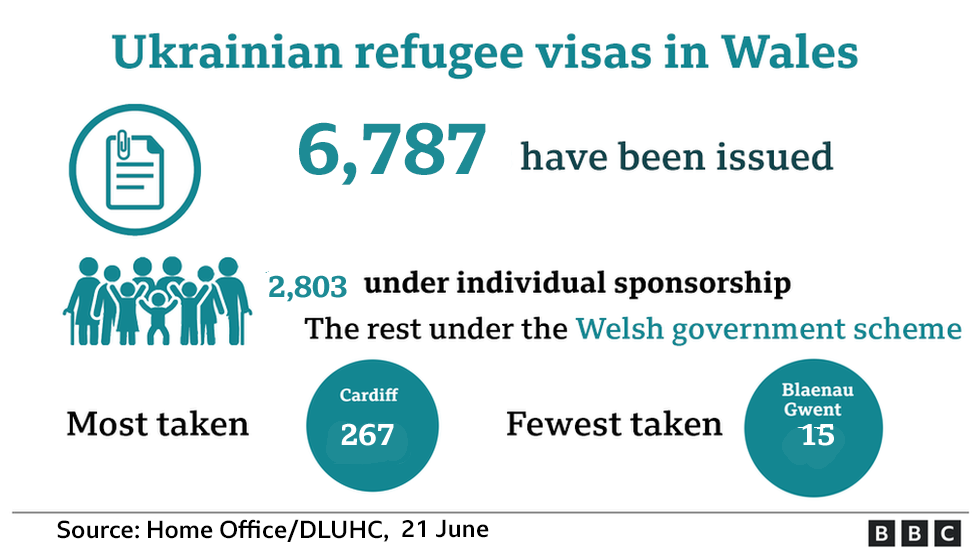
It means many parents, like Olya, are stuck in limbo, unable to send their children to school or find work without a permanent address, according to welcome centre volunteers.
Olya told BBC Wales Live she has been incredibly grateful for the help but was keen to "move forward", after spending six weeks at one welcome centre.
"The main problem for us, for me, the reason I came is that I wanted my child to go to school," said the 38-year-old.
"After my child goes to school, I can get a job.
"I really want to start working to be able to help my family who stayed in Ukraine.
"The economic situation there is very difficult right now and they need help."
The Welsh government's super sponsor scheme is currently on "pause," with welcome centres "full to capacity".
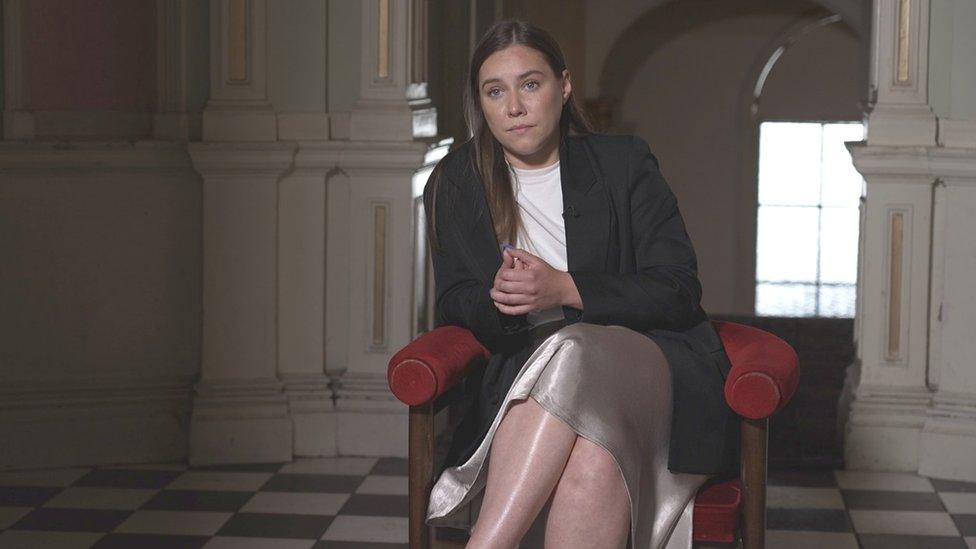
Volunteer Maryna Farrell said most refugees were "still in the welcome centres"
"There's a proportion of people who've lived in the welcome centres since the beginning of April - since the scheme started," said Maryna Farrell, one of the volunteers.
"The understanding was that they would get processed into their own place, or into a host family within two to three months.
"Most of them are still in the welcome centres."
Ms Farrell said more needed to be done to encourage potential host families and private landlords to get involved.
"I think a lot more landlords will need to come forward and accept the fact these people might not have a credit history, they might not have a guarantor and the might not be able to afford the market prices," she said.
"I honestly believe that the way the government has portrayed the whole scheme to Ukrainians was a very easy process.
"I don't think many of them understand the harsh reality of how difficult it might be [to find housing].
"When you think about a family with a kid who is school age, they can't go to school because they don't have a place of residence.
"A school is not going to take somebody in who is living in a hotel.
"It will become an issue, I think, especially as we go into September."
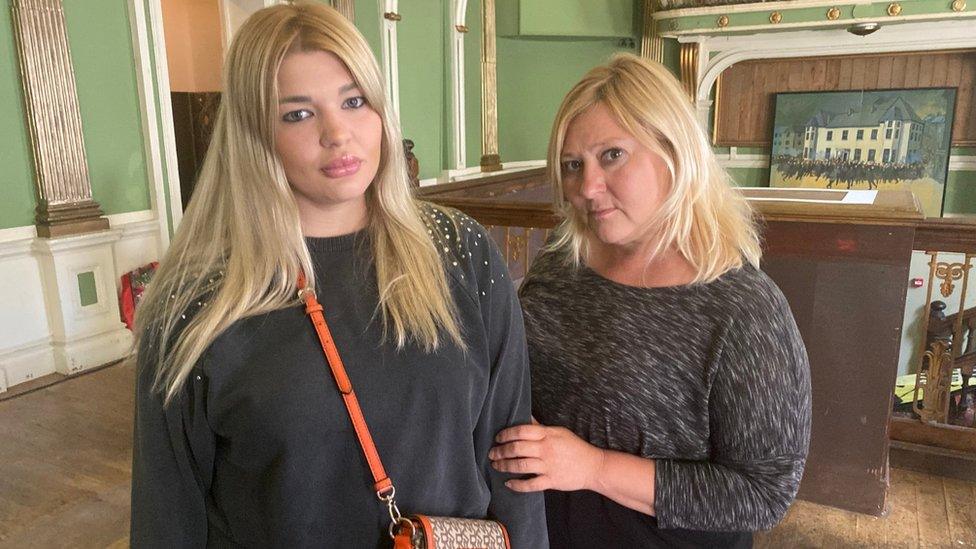
Kristina, seen with daughter Zlatoslava, said: "From our welcome centre only two families have got some accommodation"
Kristina, 47, considers herself one of the original welcome centre residents having moved in April.
It now houses about 300 residents but she and her son were among the first nine occupants.
Volunteers immediately made her feel "so welcome," even offering to order a pizza for her when she first arrived late a night.
Like Olya, she said her family were incredibly grateful but, after two months living with others, were keen to move on.
"We have to just wait and be patient," said Kristina, a primary school teacher from Odessa.
"From our welcome centre only two families have got some accommodation.
"We have applied for where we want to live. I wrote, for example, Cardiff because my daughter and son are university students and I want them to continue their education."
Social Justice Minister Jane Hutt said local authorities were responsible for helping them "move on in terms of housing accommodation, but also we are asking host families to come forward".
"Obviously there is private rented accommodation, some are making their own arrangements," she said.
"This is absolutely the priority at the moment because, of course, we have more refugees coming forward who have got visas under our super sponsorship scheme and we need to accommodate them in our welcome centres as well."
The Welsh Local Government Association said councils were "committed to doing everything they can to support people fleeing the war in Ukraine and providing sanctuary and safety in Wales".
"We are working closely with Welsh government and other partners to find and match people to available accommodation, aside from hosting, and to seek to overcome any challenges," it said.
Wales Live is available to view on iPlayer

FIGHT FOR YOUR RIGHTS: X-Ray has got your back
SPOTLIGHT ON THE NHS: Is Covid masking a bigger problem with our health service?

- Published28 June 2022
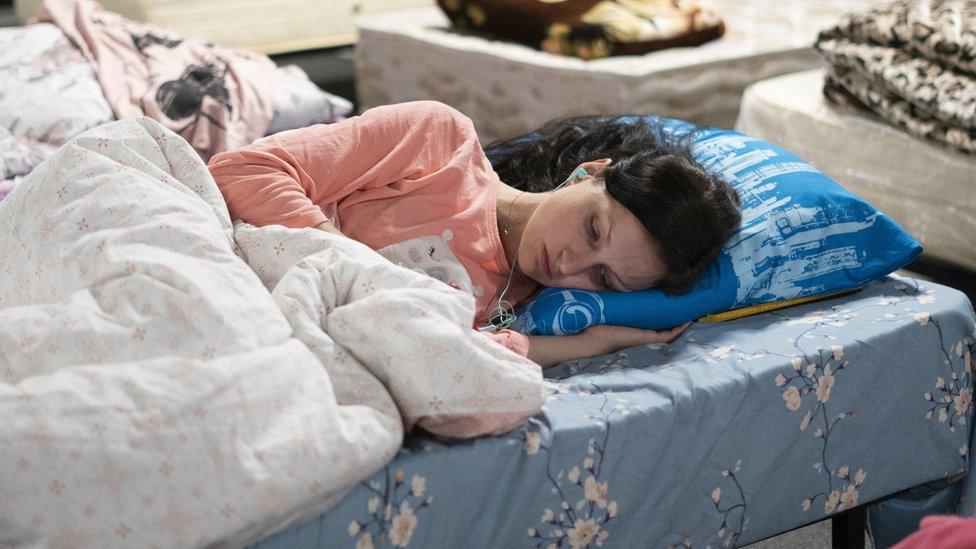
- Published22 June 2022
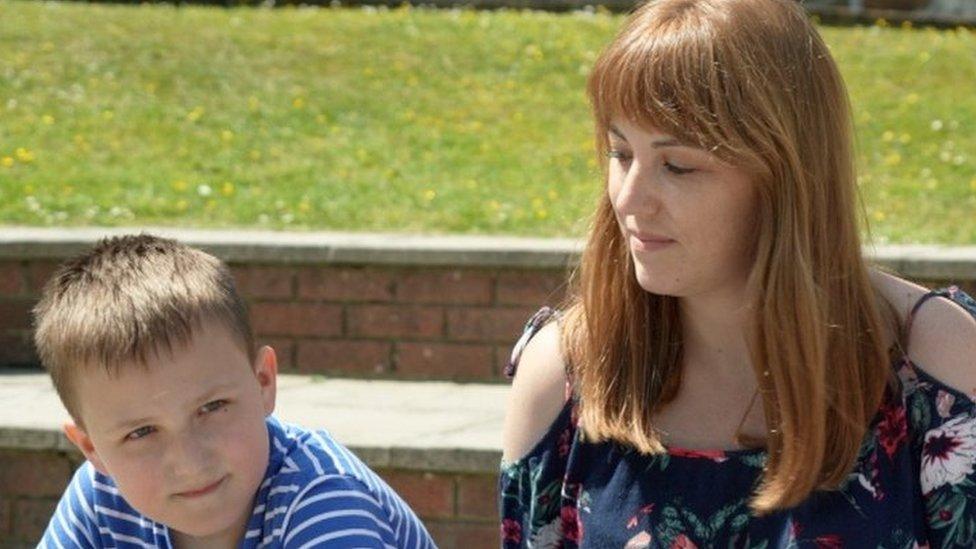
- Published22 June 2022
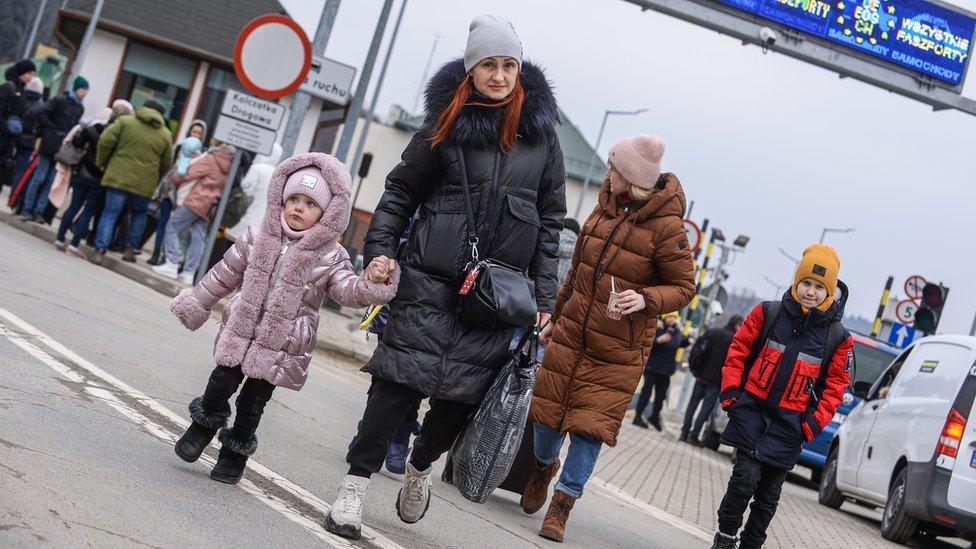
- Published24 March 2022
